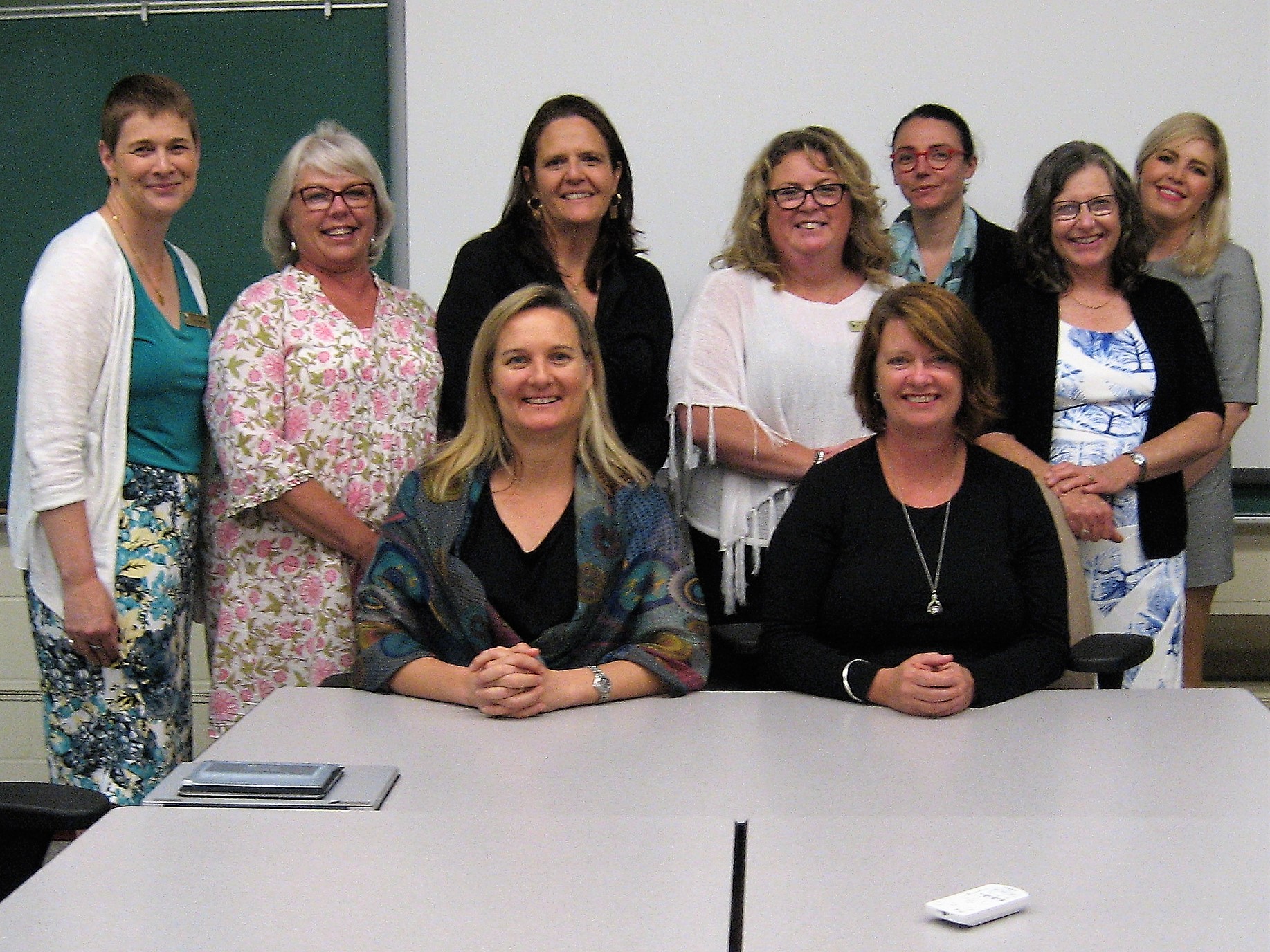A seven-member delegation from New South Wales in Australia visited schools in ASD-W from June 11-14 to talk to school and district staff about how to create a culture of inclusion in the public school system.
The group visited Ridgeview Middle School, Hubbard Elementary School and Devon Middle School to discover what it takes to be an inclusive school and how parents, families and advocacy organizations can best support inclusive education at the school level. They toured school facilities, visited classrooms, spoke with students and staff and attended special events during the school day to see inclusion and diversity in action from a variety of perspectives including First Nations.
"We are committed to inclusionary practices and providing a safe and positive learning environment for all students," Acting Superintendent Catherine Blaney told the group. "Our schools and our teachers are ready to accept and support all children coming into the classroom and we do our best to meet their needs."
Group members expressed a deep appreciation for the welcoming culture they experienced at ASD-W schools where students learn and play together regardless of their exceptionalities, challenges or disabilities. Blaney said the key to success is to work with parents and have the proper resources, training, support and advice available to teachers and staff who are leading the delivery of education.
"We have leaders who are very committed to students and are setting examples for our teachers," added Gina Dunnett, director of schools for the Oromocto Education Centre. "Our teachers love their students and our schools wrap themselves around our kids."
During the study tour, the group heard about how provincial Policy 322 has instituted a philosophy that allows each student to feel respected, confident and safe so he or she can participate with their peers in a common learning environment and learn and develop to his or her full potential. It is based on a system of values and beliefs centred on the best interest of the student, which promotes cohesion, belonging, active participation in learning, a complete school experience, and positive interactions with peers and others in the school community.
"We teach for understanding and for where the students and families are coming from," explained Cynthia Lorette, subject coordinator for educational support services at the Oromocto Education Centre. "We go to strengths first, tease those out, and work is adjusted based on a student's individual needs. We want kids to feel connected, successful and be learning from students around them."
"What you have, you need to bottle that," said Di Samuels, a member of the Australian delegation. "We don't have your welcoming culture."
Group members explained the Australian school system operates "pockets of inclusion." However, segregation of students with special needs still exists in many cases. Parents and families in Australia are challenging the current school system so that improvements can be made. New Brunswick's reputation for being a world leader in inclusion brought the group to the province to study and obtain information on how to bring those changes about.
Blaney noted integration first began in New Brunswick in 1985 and it has taken many years to build a culture of inclusion across the province. Inclusion in public school has "morphed and grown," she said, and many differences have emerged in the needs and challenges presented by students, particularly with autism and mental health issues. Nonetheless, schools must be prepared and ready to support all students and make sure they have the opportunity to learn, socialize with their peers, and acquire the skills they need to access as much of the world as they can.
Shown in the photo below (back row) Acting Superintendent for ASD-W Catherine Blaney, with members of the Australian delegation including Meg Sweeney, Cecile Sullivan Elder, Cynthia Lorette, subject coordinator for educational support services with ASD-W, Yolande Cailly, Di Samuels and Melissa Smith; (front row) Leanne Varga and Karen Tippett.
The Australian group also met with staff from the Department of Education and Early Childhood Development, Dr. Gordon Porter from Inclusive Education Canada, and representatives of the New Brunswick Association for Community Living.
